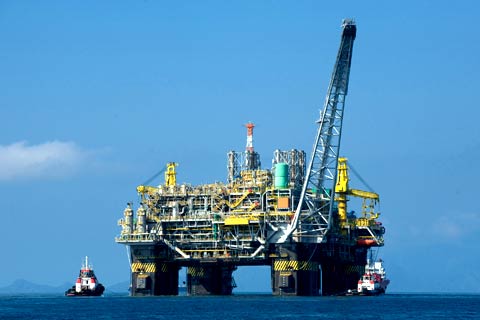Key words :
future energies,
greenhouse gas
,emissions
,oil spill
,gulf coast
,imports
,oilsands
,oïl
,supplier
,china
,crude
,canada
Putting US Energy Security At Risk
7 Jul, 2010 01:17 pm
If the Congress is serious about enhancing United States' energy security, then it should focus its efforts on reining in consumption, rather than erecting further barriers to oil produced internally or by our most reliable foreign supplier.
 In catching up on a week's worth of news after my vacation, several stories caught my eye.
In catching up on a week's worth of news after my vacation, several stories caught my eye. The US Congress is apparently renewing its effort to cut tax breaks for the domestic oil & gas industry, while the administration intends to reinstate the offshore drilling moratorium that had been set aside by a federal judge in Louisiana. At the same time, 50 members of Congress have written to Secretary of State Clinton asking her to block a new pipeline to carry crude produced from Canadian oilsands to US refineries. However, even when you factor in the energy contribution of new initiatives such as the $2 billion in loan guarantees for solar power projects announced last week, the net result of all of this would be to undermine two of the central pillars of US energy security for the last several decades: producing more energy here at home and importing energy preferentially from stable and friendly neighbors like Canada and Mexico.
For all the lip service about energy independence prompted by the Gulf Coast oil spill, these actions would ultimately make us more reliant on OPEC and unfriendly regimes.
Start with the industry subsidies, which Representative Blumenauer (D-OR) indicates are worth $6 billion per year. Setting aside the important context that these represent reductions in industry tax rates that even after these benefits are still higher than those most other US industries pay, this works out to an average of just $0.18 per million BTUs worth of domestic petroleum and natural gas production, or about $1.05/bbl. Compare that to $18.90/bbl in subsidies for corn ethanol and the equivalent of $2.60 per million BTU for electricity from wind and other renewable sources. As I've noted many times, oil & gas subsidies amount to a lot of money--though ethanol subsidies will come close to exceeding them in aggregate this year--not because they're overly generous, but because the scale of oil & gas still dwarfs all renewables combined.
I'm not a big fan of any of these subsidies, and I think it's high time that the ethanol subsidy, in particular, be brought more in line with its net energy contribution. At the same time, if we want a domestic energy industry that can make a meaningful contribution to covering our needs, then some level of tax breaks and other benefits appears necessary. And while the oil & gas industry is certainly mature and profitable, relative to biofuels and renewable electricity, it is also a global industry that competes with producers around the world, many of which are owned by the same OPEC members that have set the current oil price through effective constraints on their own production. And when drilling eventually resumes off the Gulf Coast, it is guaranteed to be much more costly. Adding higher taxes to these higher costs and tighter regulations must inevitably result in fewer wells being drilled and more oil imported--and from where?
Not from Canada, if the signers of the oilsands letter get their way. Oilsands production raises legitimate environmental concerns, both locally and globally. Producing oil from these deposits results in higher greenhouse gas emissions, though environmentalists usually fail to mention that tripling the emissions from production, compared to conventional oil, raises the total lifecycle emissions of the oil by just 17% compared to the average barrel refined in the US, because the vast majority of those emissions occur when the resulting petroleum products are burned, not when the oil is produced or processed. Now, a 17% increase in emissions is not nothing, but it must be weighed against two other factors.
First, if oil prices are high enough, this oil will likely be produced anyway, even if we don't take it. Canadian companies have already signed deals to send oilsands crude to China, and they would do more of this if we turned up our noses at the stuff. Secondly, there's no guarantee that the oil we'd import from elsewhere would result in substantially lower emissions. That's particularly true for crude produced from heavy oil deposits in Venezuela and elsewhere, which average 14% higher lifecycle emissions.
Canada has been our largest foreign oil supplier for years, but with oilsands making up a steadily-growing share of Canadian output, restrictions on our oilsands intake would torpedo that relationship. With Mexican production going into steep decline, we would have to import more from Russia and the Middle East to make up the difference. That doesn't sound like a recipe for energy security to me.
Nor can greener sources close this gap any time soon. If you doubt that, take a look at Abengoa's Solana concentrated solar power project, which the Department of Energy just awarded a $1.45 billion loan guarantee. This technology uses the sun's energy to generate steam for electricity production, and its thermal storage allows it to do so more reliably, and over a longer portion of the day than photovoltaic cells. This is one of the most promising renewable energy technologies available, though at an effective cost of over $5,000 per kW of capacity it's hardly cheap. Yet when you convert its annual power output into equivalent barrels of oil (via the quantity of natural gas it would likely back out) it works out to less than 3,000 barrels per day. Replacing the energy contribution of Gulf Coast drilling or Canadian oilsands imports would require hundreds of such facilities, along with tens of millions of electric cars to enable their output to substitute for oil, very little of which is used to generate electricity in the US.
While renewable energy sources must inevitably meet a growing proportion of our energy needs in the years ahead, for the present US energy security still hinges on oil, which accounts for 92% of our net energy imports.
If the Congress is serious about enhancing US energy security, then it should focus its efforts on reining in consumption, rather than erecting further barriers to oil produced here in the US or by our most reliable foreign supplier.
Originally posted on www.energyoutlook.blogspot.com
Key words :
future energies,
greenhouse gas
,emissions
,oil spill
,gulf coast
,imports
,oilsands
,oïl
,supplier
,china
,crude
,canada
-
12/12/12
“Peak Oil” is Nonsense… Because There’s Enough Gas to Last 250 Years.
-
05/09/12
Threat of Population Surge to "10 Billion" Espoused in London Theatre.
-
05/09/12
Current Commentary: Energy from Nuclear Fusion – Realities, Prospects and Fantasies?
-
04/05/12
The Oil Industry's Deceitful Promise of American Energy Independence
-
14/02/12
Shaky Foundations for Offshore Wind Farms







 Read more
Read more